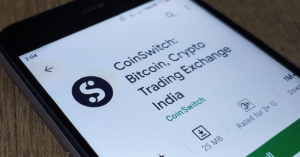Image credit: Tink
California-based payment giant Visa today announced it has signed a definitive agreement to acquire Swedish fintech Tink for €1.8B, inclusive of cash and retention incentives.
The transaction is subject to regulatory approvals and other customary closing conditions. According to Visa, it will fund the transaction from cash on hand and claims that this transaction will have no impact on Visa’s previously announced stock buyback program or dividend policy.
Here are the ten top international startups shortlisted for the 2021 Future Hamburg Award
Let’s talk Tink
Founded in 2012 by Daniel Kjellén and Fredrik Hedberg, Tink is an open banking platform that enables banks, fintechs and startups to develop data-driven financial services. Through one API, Tink allows customers to access aggregated financial data, initiate payments, enrich transactions, verify account ownership and build personal finance management tools.
It connects to more than 3,400 banks that reach over 250 million bank customers across Europe. In 2021, Tink has committed to adding 200 new recruits to the almost 400 employees it has today, serving more than 300 banks and fintechs in 18 European markets, out of offices in 13 countries.
Earlier this year, in May, Tink acquired Berlin-based equivalent FinTecSystems, which specialises in data analytics, digital account checks, account aggregation, and open banking payments, with customers including N26, DKB, Santander, Solarisbank, and Check24.
The news follows Tink’s fundraising efforts of €175M from two rounds in 2020 wherein it looked to enhance its platform, increase connectivity, and expand its product offering across Europe.
According to the press release, Tink will retain its brand and current management team, and its headquarters will remain in Stockholm, Sweden.
“For the past ten years, we have worked relentlessly to build Tink into a leading open banking platform in Europe, and we are incredibly proud of what the whole team at Tink has created together. We have built something incredible and at the same time we have only scratched the surface,” says Daniel Kjellén, CEO and Co-founder of Tink.
The founders of Tink mention in a blog post, “Partnering with Visa will allow us to further grow our organisation, products and services, to better serve our existing as well as future customers – while continuing to operate as an independent brand and build on the incredible strengths of Tink.”
Fostering open banking in Europe
Visa is a globally recognised digital payment company. It claims that its global processing network, VisaNet, provides secure and reliable payments around the world, and is capable of handling more than 65,000 transaction messages a second.
According to the press release, “The combination of Visa’s proven infrastructure and sustained investment in resilience, cybersecurity and fraud prevention with Tink’s APIs, technology and customer relationships is expected to help accelerate the adoption of open banking in Europe by ensuring a secure, reliable platform for innovation.”
“This acquisition is a sign of our commitment to Europe. In Tink, we have found a strong partner with whom we can accelerate innovation in open banking for the benefit of our collective clients and the citizens of the U.K. and the E.U., while investing in high-skill tech jobs on the continent,” says Charlotte Hogg, CEO of Visa Europe.
How the Plaid acquisition played out
Last year, in January, Visa announced that it is acquiring financial services API startup Plaid for $5.3B. Founded in 2013 by Zach Perret and William Hockey and headquartered in San Francisco, CA, Plaid is a data network that powers fintech tools.
Unfortunately, almost a year later, both the companies decided to terminate the pending acquisition after the US Department of Justice filed an antitrust lawsuit to block this deal.
“Unfortunately, the pace of a multi-year regulatory review is not compatible with the fast-moving realities of a startup – and delaying close another year or more is not in the best interest of our customers, the financial system, or consumers themselves,” Perret mentioned in a blog post.
Here’s how to build one that doesn’t, according to this expert…


![Read more about the article [Funding alert] Edtech platform Adda247 raises $20M in Series B led by WestBridge Capital](https://blog.digitalsevaa.com/wp-content/uploads/2021/11/adda247-1638260723207-300x150.png)







